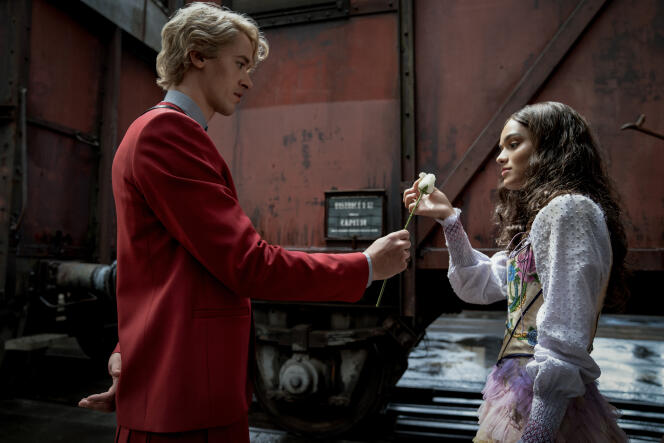


For anyone who is neither an avid reader of the Hunger Games saga nor an avid viewer of its film adaptations, viewing this fifth installment, The Hunger Games: The Ballad of Songbirds and Snakes, promises to be a mysterious ride. Let's sum up: A huge literary and cinematic phenomenon, the Hunger Games series continues the development perpetrated by the Harry Potter saga and Twilight, signaling the emergence of literature and cinema for "young adults" (a marketing name for adolescence), with works aimed directly at them.
The creation of this dystopian universe is the work of American novelist Suzanne Collins: In an undated future, the novelist follows her charismatic heroine, Katniss Everdeen, in Panem, a totalitarian state in North America. Every year, to keep its people in line, the central power, the Capitol, organizes a televised competition, the "Hunger Games." The game's 24 participants (divided into tribes) must then face each other in an arena in a fight to the death, at the end of which only one winner remains. Katniss triumphs and then leads an insurrection against Panem.
Similar to the widely emulated model of Harry Potter, the universe of The Hunger Games is an autonomous world with its own language weaved with neologisms, its own symbols and its own rules of the game, perfectly nebulous for anyone who picks up the story in the middle. Underneath all this refinement lies a discourse that couldn't be simpler: a soft critique of the society of spectacle, dictatorships and injustice in general. Underneath the veneer of protest, an entire industry is rubbing its hands with glee.
There's nothing new in this fifth adaptation, which is a prequel set 60 years before Katniss' adventures, recounting the youth of Corolianus Snow, who would become the emblematic dictator of Panem and the sworn enemy of the heroine played by Jennifer Lawrence. Let's be frank: It would be naive to believe that the film is aimed at anyone other than fans of the saga. All the pleasure that could be derived from it seems to lie entirely in the viewer's impression of holding the key to a universe in itself, which is opaque to neophytes, and which constantly refers back to the other films and novels. This umpteenth installment seems to be there simply to maintain complicity with its audience, to make sure it's still there, and to replenish the coffers in the process – we call this "ensuring fan service."
Beneath the protesting and deceptively ultra-violent veneer lurks a series of mawkish twists borrowed from Greek mythology and played by actors as beautiful as models – when it comes to political culture, movies and science fiction novels don't wait for marketing consultants in order to address teenagers. In short, the emergence of young adult works seems to be a ready-made excuse for the industry to sanitize form and content.
You have 5% of this article left to read. The rest is for subscribers only.
